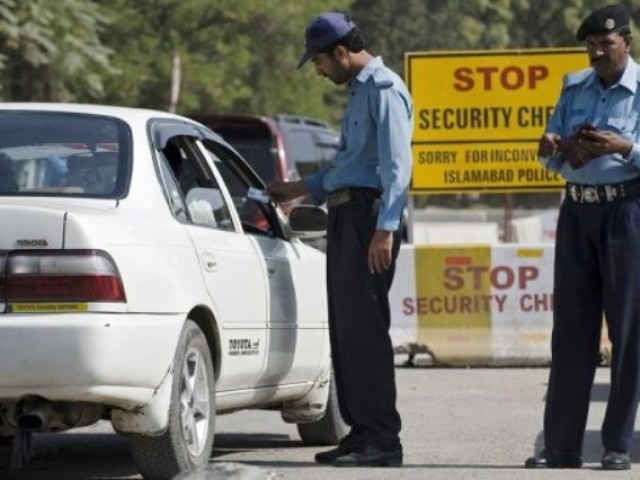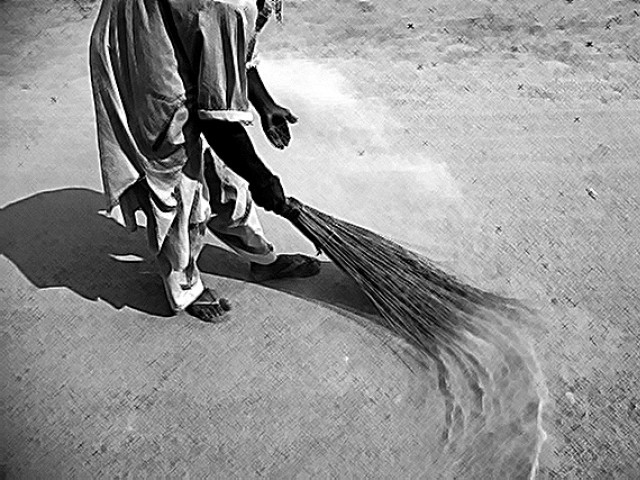http://pique.pk/education/06-Dec-2013/stifling-education
Stifling education
The quality of Pakistan’s government school teaching, as well as the dire state of its textbooks, undermines the education of our children
A student at an ESL (English as a second language) institute in Pakistan failed a basic English exam, even though she herself taught English at a local nursery school. Sadly, the most common reaction to this is, “Oh well, they’re only little kids.”
And that is the pivot upon which this article turns. Does it matter how – or what – very young children are taught, and who teaches them? More specifically, what are the aims of education in Pakistan, and does the present system fulfil these aims?
The Constitution of Pakistan (1973) Article 7 (b)says, “The state of Pakistan shall… remove illiteracy and provide free and compulsory secondary education within the minimum possible period.” But the present picture of our education system gives a conflicted picture of whether or not these intentions are being made reality: schooling in Pakistan is not compulsory, although government schools and textbooks are free from years one to ten.
If literacy is defined as the ability of persons fifteen years of age and over to read and write, Pakistan’s literacy level is just 54.9% of a total population of more than 193,000,000 people. The small fraction of the country’s GDP spent on education in the budget (2.4% in 2010, ranking Pakistan at 161 out of 173 countries) could be augmented by decreased spending on and by officialdom, but that is not the subject here.
The United Nations’ Universal Declaration of Human Rights (1948) says: “Everyone has the right to education. Education shall be free, at least in the elementary and fundamental stages. Elementary education shall be compulsory.” Malala was shot in Swat for highlighting the ban by the Taliban on educating girls. This makes those imposing this ban criminals, as well as those parents who do so for cultural reasons.
As for the question about young children: recent research at King’s College in London and Brown University in the US dealing with the secretion of a substance called myelin in the brain, and appears to provide the answer. The finding sindicate that the brain is at its most mouldable until the age of four. It concludes that from birth to the age of four is the best time for a child to learn a language. The better the education at that most receptive stage, the more the student is likely to learn. A teacher who is unable to converse in English herself is likely to waste this opportunity.
In Pakistan generous funding from international organisations is available, but ghost schools (institutions that exist on paper alone) and schools that offer less than the minimum requirements stipulated by the constitution,proliferate at a proportionate rate. According to a report issued by its ministry,12,794 schools in Sindh lack adequate shelter, 34,386 are without electricity, 26,669 do not have boundary walls, 23,349 do not possess a lavatory and 25,237 have no access to drinking water.
It is a requirement in the Punjab that government school teachers must possess at least a Bachelor’s degree in education. The same requirement does not apply to private school teachers. The cost of these qualifications is very low at government universities and colleges, but much higher in the private sector. Recent changes have also fixed the salaries of government school teachers to a minimum of grade 16, while government university teacher salaries start at grade 18.
The national education policy makes it mandatory for government school teachers to undergo additional training once every five years. This training is provided free of charge. In the Punjab – where the number of teachers is very large – it is not always possible for many teachers to benefit from these courses.
However, other short training courses, lasting from two weeks to six months are available, also free of charge. These courses are heavily sponsored by the British Council, USAID and other international organisations, which also provide stipends for qualified teachers willing to work in more remote areas of the country.
With all these benefits and regulations, it can only be that teacher absenteeism from their jobs and from these courses is – like other infringements in society – beyond the control of the authorities. In fact,many of the problems in the educational sphere in Pakistan appear not to be as a result of the rules,but that these rules are either overridden or too easily set aside. A major aspect of this problem is the quality of textbooks used in teaching students in government schools.
There is a vast difference between the textbooks used by students taking the OLevel exam,and those used by matriculates. This contributes to the ever-widening gulf between the haves and the have-nots, which starts with education, but goes on to other facilities (or their lack thereof), and manifests itself in the extremism, unrest and violence we see today.
Publication rights of textbooks in the Punjab are granted to private publishing houses. The books were once printed on the cheapest possible paper, such as newsprint. This, for a poor country, is understandable. The low standards seen in the rest of these publications is not, and these cannot be blamed on poverty.
I looked through some English and Pakistan Studies textbooks for classes nine and ten, approved by the Punjab Board for this report. The paper quality has improved, but even a child with the most generous secretion of myelin is unlikely to respond positively to such texts.
The English textbooks teach less English and more Islamiyat, and in the dullest possible way. If there are Harry Potter fans reading, think about Professor Binns, the ghost teacher who, without realising he was dead carried on teaching, boring his students to death. We start with a chapter about the Prophet Muhammad, which includes several lines in Arabic,and the full version of ‘peace be upon him’(in Arabic), every time a religious personage is mentioned. There are then two preachy little chapters about patriotism, followed by one about Hazrat Asma. Remember, Islamiyat is also taught as a separate subject.
Do you know what a “cataphoric reference” is, or an “anaphoric reference”? I have no idea either, and that’s in a class nine textbook for students who in many cases have very poor English. The students – most of them from underprivileged homes where education is scarce and English is not commonly spoken– are being taught terms they are unlikely to ever use again.
Some way down the line, these textbooks will produce a matric graduates who will not know to put ‘an’ instead of ‘a’ before ‘anaphoric’, but may have a nebulous recollection of what anaphoric means – only to forget it during his first job as an electrician’s or grocer’s apprentice. Besides this, the textbook repeats two chapters, omits one, and two pages in a new book are half-missing.
The problems run deeper with Pakistan Studies, which is once again a study in Islamiyat. Textbooks for this subject portray Pakistan as exclusively for Muslims. The only mention of minorities is at the end of the textbook for class ten. Clearly at that age they are considered equipped to handle such unfortunate facts of life in an appropriate way.
In her book, The Language Police, Diane Ravitch – an educational historian and policy analyst – criticises this stifling of the study and expression of views by groups with vested interests. Ravitch’s book explains how pressure groups of varying political persuasions have manipulated the content of educational textbooks, often at the expense of quality, accuracy and the education of those who read them. The result is what we see in Pakistan today.
We possess some extremely dedicated professionals – some of whom I consulted about this article, but did not wish to be quoted. Unfortunately,their voices are overridden by those unqualified in the field. If this continues, Pakistan will in turn be overridden by the rest of the world.






